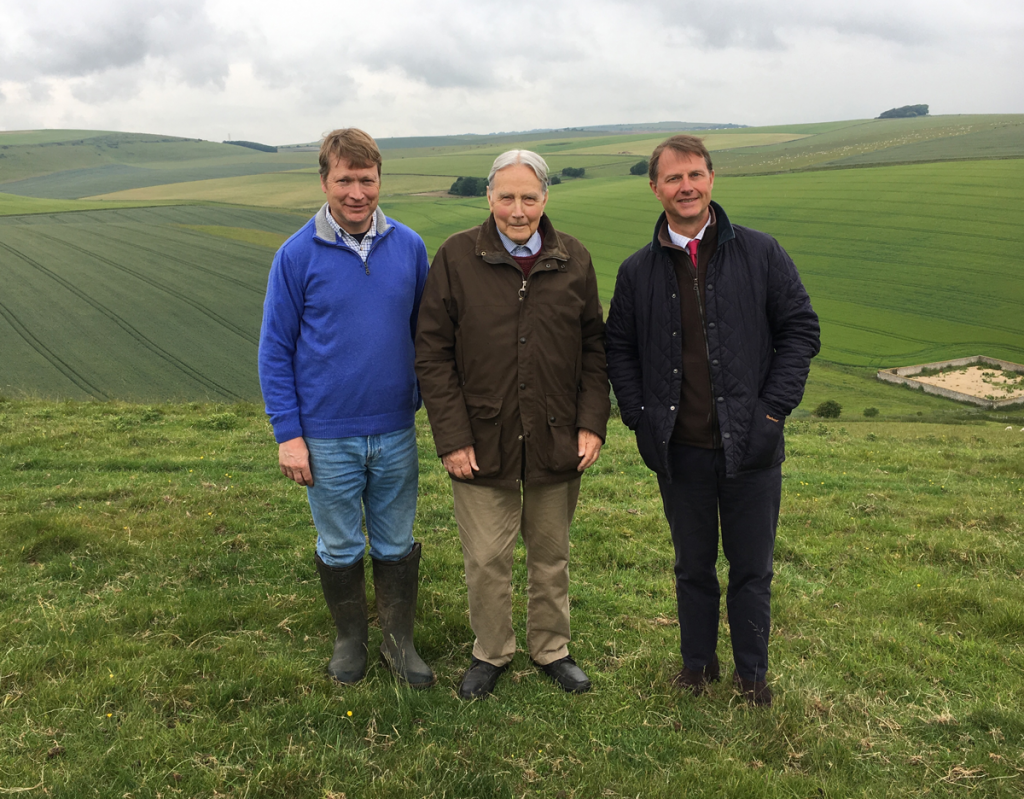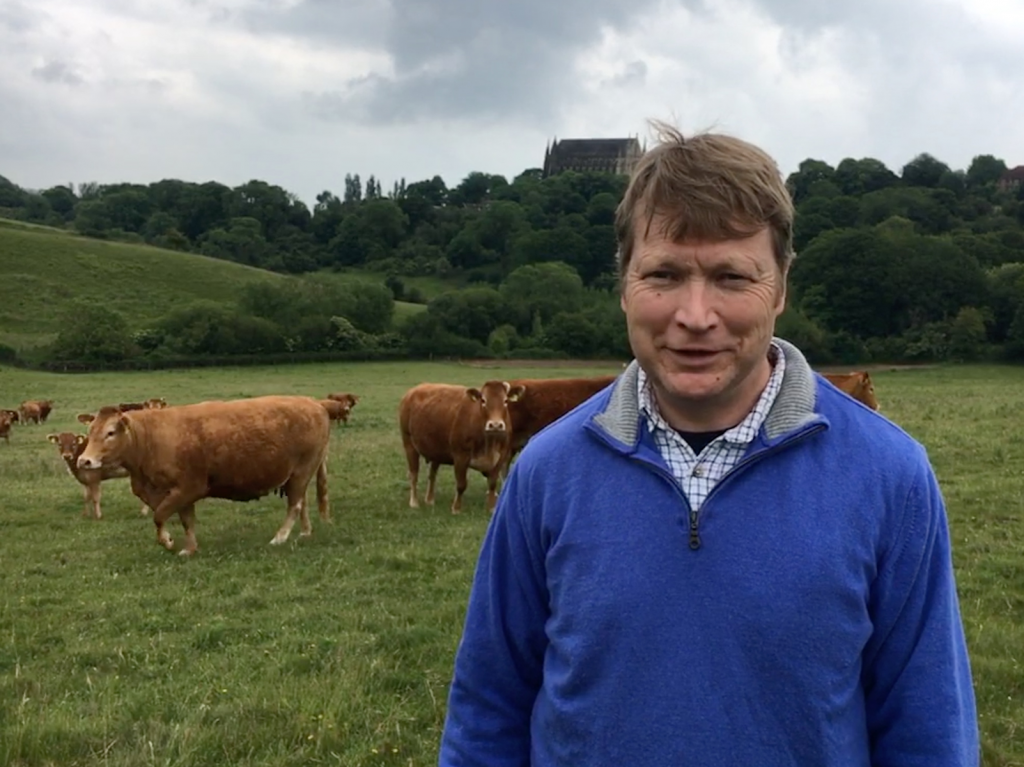
This week I am visiting Christopher, Hugh and Sara Passmore in my role as President of the West Grinstead & District Ploughing & Agricultural Society with the society’s Hon. Secretary Rowan Allan.
As we leave H. J. Burt, Rowan’s offices in Steyning, for their farm he describes how the Passmore’s and their team have been practising sustainable farming at Applesham long before it became fashionable.
We arrive at Applesham Farm amongst the flint and tile workshops and are met by Christopher and Hugh. They point out how these units have gained new life and are being occupied by craftspeople in a similar way to the estate workers who used them when they were first built.
Hugh’s wife, Sara, joins us as we gather in their farmhouse kitchen. Christopher explains how his Grandfather came to Applesham in 1901 as a tenant of the Petworth and Leconfield Estate. He says “My Grandfather subsequently bought the farm. Before he came it had been empty for 18 months. We still farm 850 acres of that land today.”
The importance of continuity and long-term stewardship quickly becomes apparent. But while there is a willingness to embrace the best of traditional farming practice their approach is very modern analysing each season and allowing the facts to inform their decisions.
Changes at Applesham Farm are processional rather than revolutionary as Hugh and Christopher apply science and their deep experience and understanding of their land to their farming.

Today the farm combines arable with sheep and beef which is key to Hugh and Christopher’s approach. Hugh explains “We employ a traditional seven year crop rotation with the last cereal crop undersown with grass and clovers. We graze sheep and cattle on the new grass leys once the cereal crop has been harvested. The fresh grass and clover is highly nutritious, bringing fat lambs on from ten weeks.”
Hugh highlights how the sheep and cattle replenish the soil with natural manure saying “We have thin chalk soils so we must feed it constantly”. This natural approach blesses the soil with a high organic matter content.
Hugh regularly walks the cereal crops, keeping spraying to a minimum. Christopher says “We don’t use any insecticide in the summer because we would take out a lot of the beneficial predatory insects which feed on the problem insects, they are the natural pest controllers.”
As we drive out onto the farm we come across the Limousin cattle with their bull, grazing alongside the Lleyn and Texel cross sheep.
The farm sits in a bowl and the steep escarpments are nutrient poor but species rich. Hugh and Christopher maintain it as chalk grassland, occasionally grazing it to maintain the wild-flowers. There are an abundance of butterflies, birds and insects once common to our land and some 140 species of plants.
The farm has won awards for Best Farm and Conservation across the South East and Christopher was awarded an OBE for services to nature, conservation and agriculture.
Their balanced approach has created a productive, profitable farm working in balance with nature. Applesham Farm is rightly celebrated and will be hosting the West Grinstead & District & Agricultural Society annual ploughing match on Saturday 21st September 2019. Save the date!
By Rupert Toovey, a senior director of Toovey’s, the leading fine art auction house in West Sussex, based on the A24 at Washington. Originally published in the West Sussex Gazette.